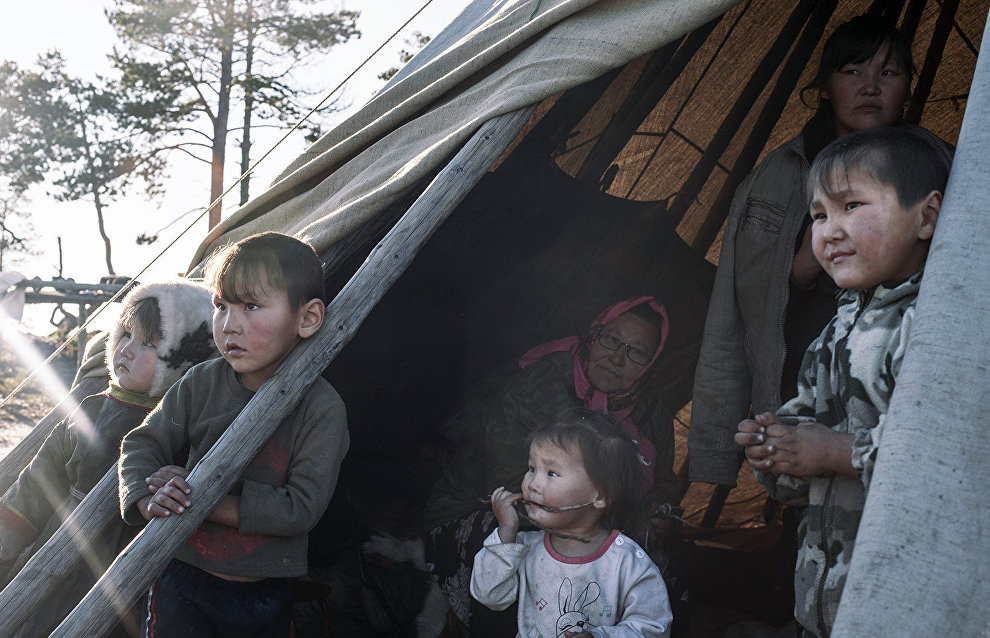Scientists to list hereditary diseases of Yamal ethnic groups
In 2017, there are plans to compile an atlas of hereditary diseases of small indigenous Arctic ethnic groups living in the Yamal-Nenets Autonomous Area, TASS reports, quoting Alexei Titovsky, director of the Area's Department of Science and Innovations.
"For the past few years, experts have been conducting gene profiling of members of small indigenous Arctic ethnic groups. This makes it possible to evaluate changes in their bodies, their influence on children and to predict irreversible changes in the genetic code. Scientists collect a lot of samples in ethnic communities and at nomadic camps," Titovsky said, noting that the project would eventually make it possible to compile an atlas of hereditary diseases of small indigenous Arctic ethnic groups.
Over the past few years, more and more members of small indigenous Arctic ethnic groups have been suffering from gastric conditions, bronchial disorders and enlarged thyroid glands, he said. This is caused by changes in their diet because they no longer eat enough reindeer meat and fish and are switching to European foods. Their genetic code is not adapted to new foods, and their bodies are unable to fend off harmful microelements, Titovsky stressed.
"Their bodies don't assimilate sugar, a condition leading to new hereditary diseases," he added.
The Yamal and Gydan peninsulas are home to the indigenous Khanty, Nenets, Komi-Izhemtsy and Selkup ethnic groups. Their total population is about 42,000, including almost 17,000 nomads engaged in reindeer-breeding, herding and fishing.
